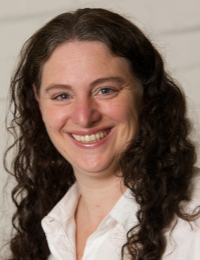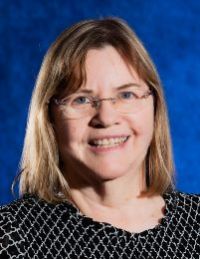
Peripartum cardiomyopathy (PPCM) is a rare but potentially life-threatening form of heart failure occurring in the final month of pregnancy through five months postpartum. This comprehensive lecture will provide healthcare professionals with an evidence-based approach to recognizing, diagnosing, and managing PPCM in the context of lactation support and maternal-infant health. The presentation will explore current understanding of PPCM pathophysiology and go in depth on pharmacotherapy management including medication compatibility with breastfeeding.
Breastfeeding women use herbal medicines for a variety of reasons and look to their health care providers for advice around issues of safety and efficacy. This presentation aims to arm health care professionals with the guidelines, knowledge and tools required to inform clinical decision making when working with herbal medicines and breastfeeding women. This presentation examines the barriers to obtaining the high level of evidence required for safety and efficacy studies in pregnancy and lactation and looks at the existing pool of evidence and resources that are available. It provides the practitioner with an understanding of the principles underlying the transfer of substances into breast milk and gives strategies to minimise potential adverse effects on the infant and the mother’s milk supply. Not all herbal medicines can be deemed compatible with lactation, but the judicious use of appropriate herbs may provide a safe and effective treatment option for mothers with very little risk to the breastfeeding infant. It is important that practitioners assess each herbal medicine on its own merits, using the totality of available evidence which includes traditional use, pharmacological studies, animal studies and appropriately designed clinical trials. Although high level safety and efficacy data is lacking, there are several resources available to assist with clinical decision making and risk assessment to help women make informed choices about their health care needs.
Effective perinatal pain care balances two patients—the mother and the infant—while avoiding undertreatment and unnecessary opioid exposure. This presentation distils current evidence on when opioids are indicated in pregnancy and breastfeeding, how to minimise dose and duration via multimodal strategies, and how to monitor mothers and infants safely. Gerrard will translate guideline recommendations into ward-level decisions (e.g. neuraxial vs systemic options; immediate-release for acute use; discharge quantities and oMEDD), highlight pharmacogenomic considerations that influence codeine and tramadol response and risk, and summarise best-supported choices in lactation (e.g. cautious, short-course use with infant observation; morphine often preferred; avoid codeine where feasible). Real-world data from a Drug Use Evaluation on post-caesarean analgesia will illustrate stewardship principles that reduce total opioid use without compromising comfort. Practical communication frameworks will help clinicians set expectations, document plans, and provide clear counselling on breastfeeding safety, warning signs of infant over-sedation, safe storage, and deprescribing. Attendees will leave with checklists, scripts, and dosing guardrails to support confident, consistent practice across antenatal, intrapartum, and postnatal settings.
New mothers can be affected by a variety of mental health conditions including anxiety, depression, and obsessive compulsive disorder. They may develop post-traumatic stress as a result of a complex birth. Others may have pre-existing conditions like ADHD or bi-polar. These conditions may all need to be treated with medication but is the desire to breastfeed a barrier? We need to consider different drugs used in the mental health continuum and the evidence of compatibility with breastfeeding.
Many health professionals are wary of pregnant women using medication due to their potential effect on the fetus. This presentation follows the woman’s pregnancy journey from pre-conception to postpartum, assessing the evidence for managing common antenatal presentations and their complications including nausea and vomiting, gestational diabetes, hypertensive disorders and anaemia. The presentation aims to educate and empower endorsed midwives and other health professionals to provide timely, evidenced-based care to women during the pregnancy continuum to reduce medication risk and improve outcomes for both mother and child.
This presentation explores the safe and effective use of medicines during pregnancy and breastfeeding, with a focus on optimising maternal and infant health. It covers physiological changes in pregnancy, TGA pregnancy categories, and how to talk to patients about medicine use in pregnancy. The presentation also addresses the transfer of medicines into breast milk, potential impacts on the infant, and evidence-based decision-making. Emphasis is placed on counselling, shared decision-making, and resources available to support clinical decisions. This session aims to enhance confidence and competence in managing medicine use during these critical life stages.

Wendy Jones
Dr Wendy Jones is known for her work on providing a service on the compatibility of drugs in breastmilk and has been a registered breastfeeding supporter for 38 years. She is passionate that breastfeeding should be valued by all and that medication should not be a barrier. In her employed life she was a primary care pharmacist. Wendy left paid work 14 years ago to concentrate on writing her books and developing her website to provide information for mothers and professionals. Although threatening to retire, somehow she keeps getting involved in projects and she still enjoys supporting families and professionals. Wendy has published 4 books: Breastfeeding and Medication (2018), The Importance of Dads and Grandmas to the Breastfeeding Mother (2017), Why mother’s medication matters (2017), Breastfeeding and Chronic Medical Conditions (2020) and co-edited A Guide to Supporting Breastfeeding for the Medical Professional (2019). She has also written a lot of fact sheets on Breastfeeding and Medication on her website www.breastfeeding-and-medication.co.uk. Wendy was awarded an MBE in the New Year’s Honours List 2018 for services to mothers and babies. She received her award at Windsor Castle in May 2019 from Her Majesty Queen Elizabeth. She has 3 daughters and 7 grandchildren all of whom were breastfed to term. They form a large part of her life together with her husband, horse and dogs.

Sarah Ayers
Sarah Ayers is a clinical pharmacist specializing in maternal-fetal medicine and academia. She completed a two-year pharmacotherapy residency program at the Texas Tech University Health Sciences Center (TTUHSC) in Lubbock, TX and has made significant clinical and research contributions to TTUHSC’s InfantRisk Center in Amarillo, TX during her residency training and onward. Dr. Ayers’s professional interests include optimizing medication safety in mothers and infants, evidence-based medicine, and advancing pharmacist involvement in perinatal care.

Julie Cottle
Julie Cottle is a naturopath, International Board Certified Lactation Consultant (IBCLC), and regulatory science professional specialising in foods and complementary medicines. She holds a Master of Health Science and a Graduate Diploma of Health Science (Western Herbal Medicine) and provides academic support for the Bachelor of Health Science (Naturopathy) program at Endeavour College of Natural Medicine. Julie delivers telehealth services supporting mothers and infants through a global employee assistance program with Maven Clinic and works as an independent consultant in regulatory compliance and technical affairs for foods and complementary medicines in Australia and international markets. In this presentation, she integrates academic, clinical, and regulatory perspectives to examine the evidence base for herbal medicine use during pregnancy and lactation, equipping practitioners with practical guidance for safe, informed decision-making.

Gerrard Ferreira
Gerrard Ferreira is a clinical pharmacist at King Edward Memorial Hospital (Women and Newborns), where he supports obstetric and gynaecology wards and occasionally the sterile compounding suite. With a Bachelor of Biomedical Science (Microbiology & Immunology), Honours in orthopaedic research, and a Master of Pharmacy—from UWA—he is now in the final months of his MBA. Gerrard’s clinical interests include peripartum analgesia and medicine safety in lactation; he has authored a study on postoperative opioid use following caesarean section, examining utilisation patterns and implications for care. He is also the founder of Health Intelligence, a primary-care venture delivering mobile clinics, health risk assessments, and integrated digital workflows. When not at the hospital or building Health Intelligence, you’ll find him on the hockey field or tending a slow-cook Texas-style BBQ.

Treasure McGuire
Associate professor Treasure McGuire is an experienced clinical pharmacist, pharmacologist, educator, and researcher. As assistant director of pharmacy, Mater Health, SEQ, she manages an academic practice unit that delivers pharmacology curricula to five health disciplines across three universities. She holds two senior appointments in her hospital role with: 1) Bond University Medical School (as associate professor of pharmacology and 2) The University of Queensland School of Pharmacy (as associate professor, clinical). Treasure has worked in a wide range of practice settings: women’s and newborn health, medicines information, medication safety and toxicology – in Australia, USA, and the Netherlands. Her research is translational and evidence-based, focusing on patient centred-care and quality use of medicines. She is a regular invited speaker at national and international conferences, with over 60 keynote addresses.
Hao Vo-Tran
Hao Vo-Tran is currently the Medicines Information and Publications Pharmacist at the Royal Women’s Hospital, Melbourne. In this capacity, she provides medicines information to healthcare professionals and the public alike. She is also the editor of the Women’s Pregnancy and Breastfeeding Medicines Guide (PBMG). Hao completed her Bachelor of Pharmacy (Hons) at Monash University in 2006 and commenced her career at Western Hospital, Melbourne. In 2010, she began working at the Women’s hospital as a clinical pharmacist before transitioning to her current role. Her work allows her to continually promote the safe use of medicines in pregnancy and breastfeeding.